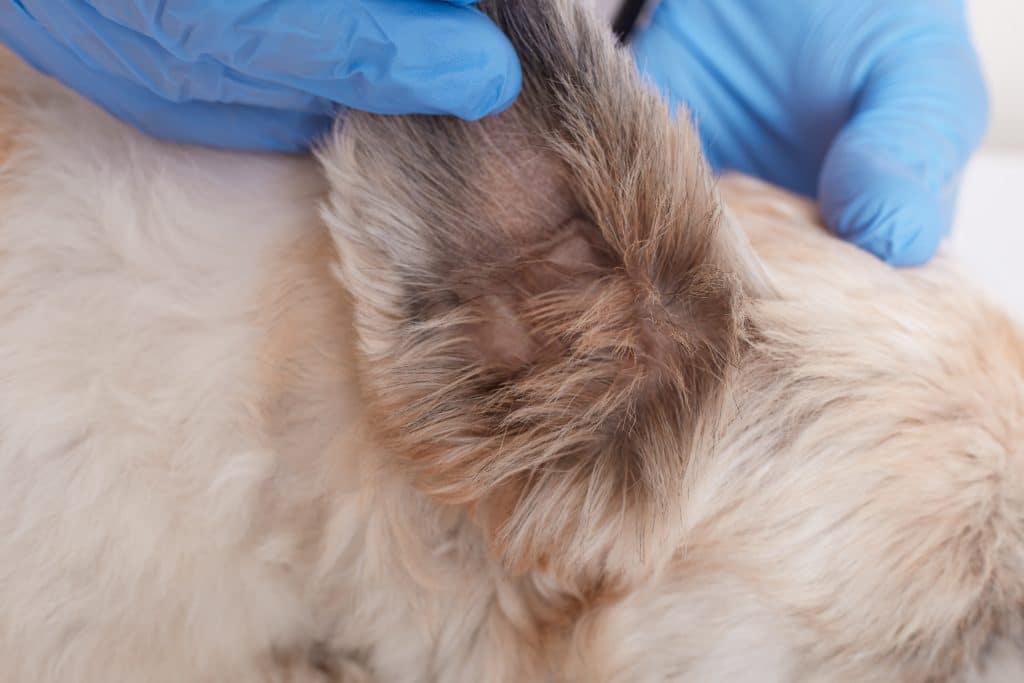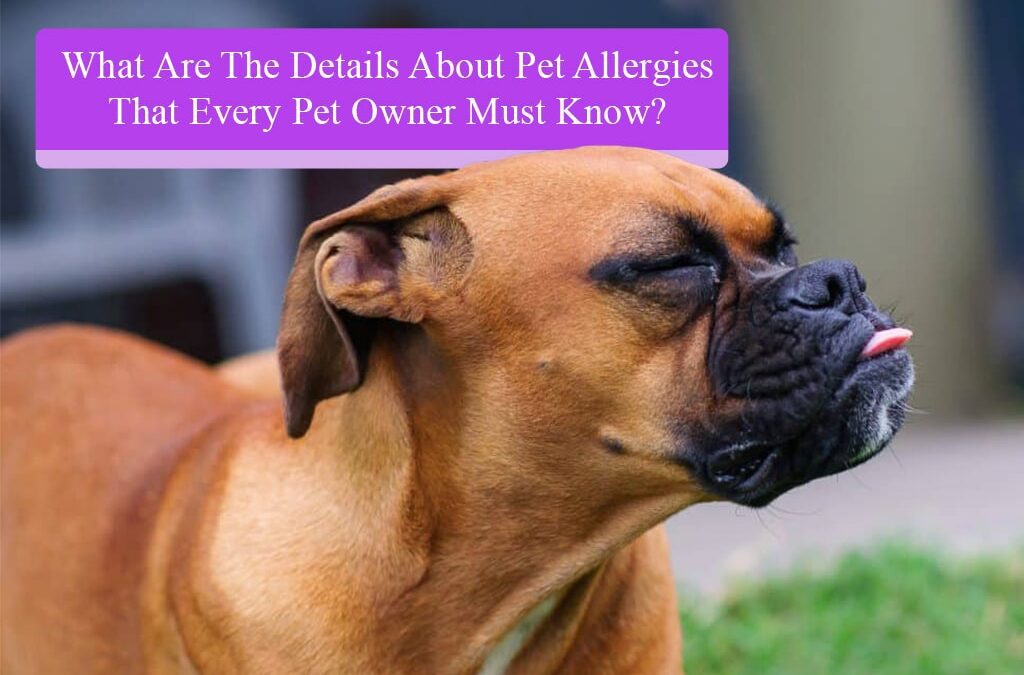Pet allergies can significantly impact the well-being of both pets and their owners, making it essential for pet owners to understand the basics. At Eagleson Veterinary Clinic, we recognize this importance and aim to provide concise yet informative insights into pet allergies.
From identifying common allergens to recognizing symptoms and exploring treatment options, our goal is to empower pet owners with the knowledge they need to effectively manage their pet’s allergies and ensure their continued health and happiness. This blog focuses specifically on this topic, delving deeper into the intricacies of pet allergies and offering practical advice for pet owners.
What are the common signs of allergies in pets?
An indicator that your dog may be struggling with allergies is excessive chewing on their paws or noticeable swelling to their paws. Additionally, pets can display similar common allergy symptoms to humans, such as:
- Constant scratching or biting
- Red or inflamed skin
- Watery eyes
- Diarrhea
In cats, a matted appearance on the fur, constant scratching and licking, tiny sores on the body, sneezing and difficulty in breathing may indicate possible allergens.

What are some common allergens for dogs and cats?
If your pet is exhibiting signs of allergies, chances are the allergens affecting them are the same ones that might trouble you. Knowing which allergens are common in pets can help you manage your pet’s allergies.
- Pollen from trees, grass and flowers can cause allergic pets to develop itching, sneezing and discomfort during most spring and summer months.
- Dogs and cats can develop food allergies as well. Beef, chicken, wheat and soy are common culprits. You can consider switching your pet to a hypoallergenic diet, or you can do an elimination diet to help you identify problematic ingredients.
- Though flea saliva is harmless for most dogs, it could be very itchy and cause allergic reactions for some pets. Maintaining a regular flea prevention system can help protect your pets.
- Dust mites thrive in a household environment, their proteins provoking your dog’s or cat’s immune system to become allergic and cause symptoms. General cleaning and hypoallergenic bedding can help mitigate this.
- Some household products such as cleaning agents and perfumes can irritate sensitive pets. To reduce allergenic exposures in your pets’ environment, use pet-safe substitutes.
How are pet allergies diagnosed and treated?
Diagnosing and treating pet allergies requires a comprehensive approach tailored to each individual pet. Our dedicated team is committed to providing personalized care for your furry family members.
To diagnose pet allergies, we can try conducting elimination trials, or allergy testing can be conducted at a specialty hospital. These tests help identify the specific allergen triggering your pet’s symptoms, allowing us to devise an effective treatment plan.
Treatment options for pet allergies may vary depending on the allergen and the severity of your pet’s symptoms. They can include dietary changes, antihistamines, corticosteroids, topical medications, environmental modifications, flea prevention measures, and other tailored solutions.
At Eagleson Veterinary Clinic we understand that your pets are part of your family. We are dedicated to ensuring the happiness and health of your furry companions! Recognizing the signs and severity of your pet’s allergies is crucial to preventing discomfort. If you have any questions about the symptoms they might be experiencing or potential allergens, please reach out to us. We’re here to help!

